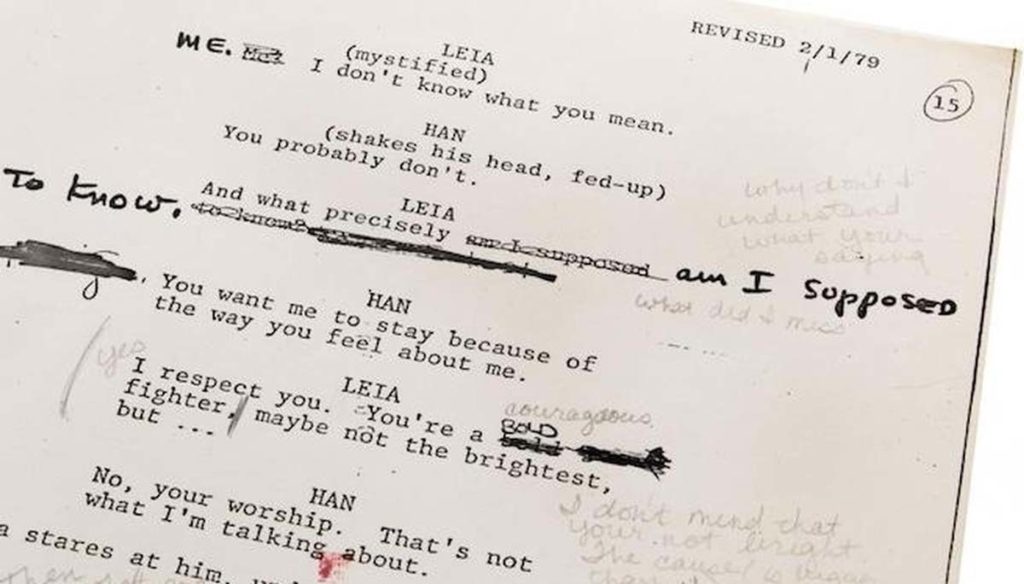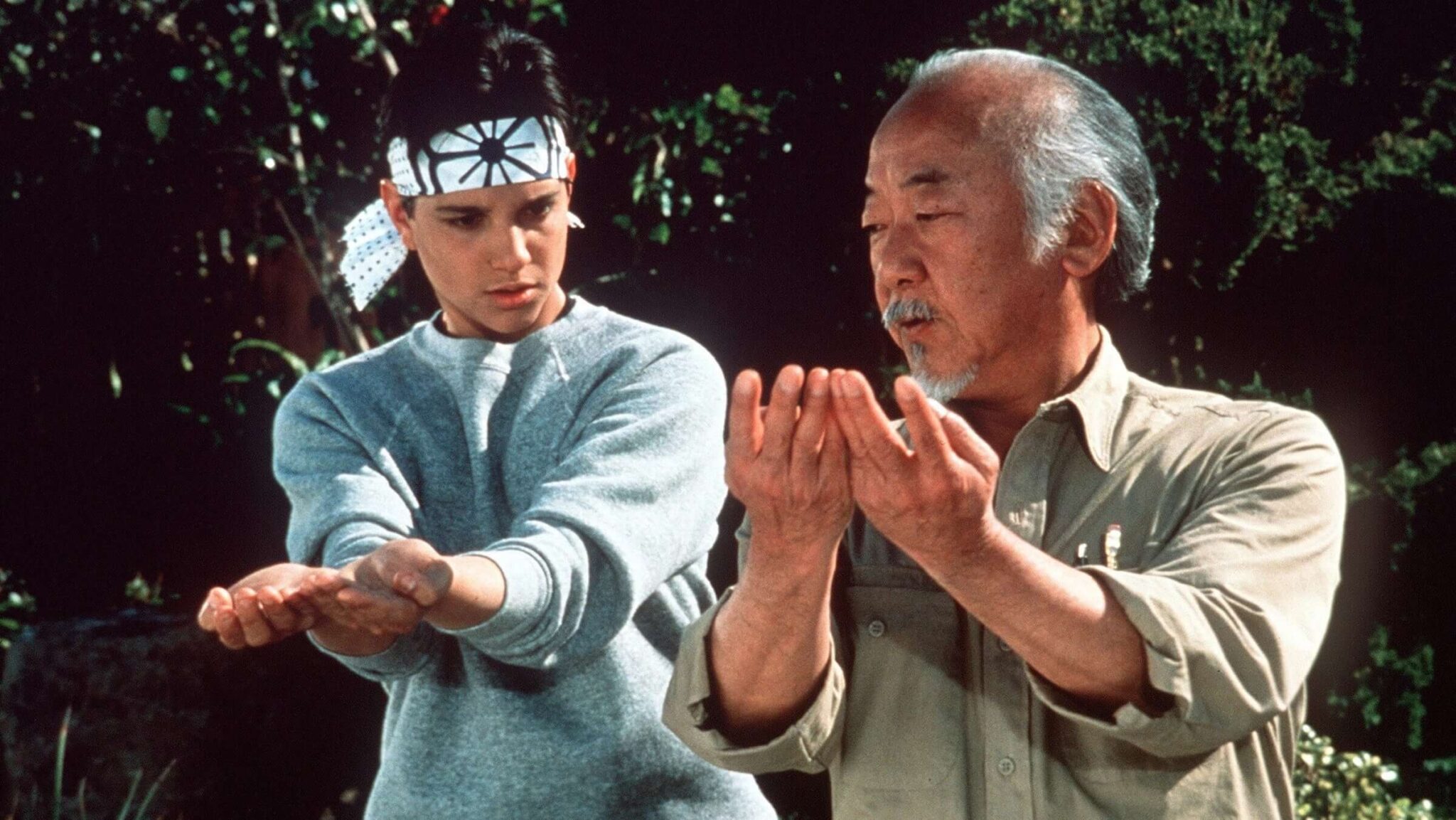Why Screenwriters Should Focus on Getting an Assignment Over Selling a Script

Should screenwriters be focused on selling their spec scripts or being hired for paid writing assignments?
Screenwriting friends, it's time to shift the expectations and goals passed down to screenwriters over the last forty years.
How the Screenwriting Times Have Changed
Back in cinema's first half-century, the dynamics of being a screenwriter were much different. Screenwriters were contracted through the studios much like movie stars of those decades were — paid an agreed-upon salary to work on whatever the studio deemed necessary.
It was much more like a full-time job. Screenwriters benefitted from the job security but usually found themselves working on projects that didn't originate from their imagination.
Sure, screenwriters-for-hire was a thing. But it usually involved long-term contracts with studios.
After the 1970s, when the studio heads sold their stakes to corporations, the Hollywood landscape changed. Long-term studio contracts were a thing of the past for both screenwriters and actors (as well as directors).
During the Writers Guild Strike of the late 1980s, the spec market was truly born.
Screenwriters were no longer focused on studio contracts, which really didn't exist anymore. They were now focused on supplying to the demand of the studios looking for scripts to produce. Screenwriters worked on spec (i.e., for free) to create desirable screenplays for studios.
This trend continued into the screenwriting boom of the 1990s, where studios were paying seven figures for hot pitches and high concept screenplays.
Read ScreenCraft's Pro Screenwriting Assignments Guide: Contract Sample & Breakdown for Features

And that created the expectations and goals you see with screenwriters to this day.
- Write a high concept or desirable script
- Sell said high concept or desirable script
- Rinse and repeat for a successful screenwriting career.
Here's the eye-opening truth, though — this module is the anomaly in Hollywood. For a majority of screenwriters, this will never happen.
In 2020, reported spec sales amounted to a number in the twenties, mostly from already-represented screenwriters.
"But that was because of the pandemic," some would retort.
In 2019, there were just 35 reported spec sales. Again, most from already-represented screenwriters.
In 2018? 40.
That's not to say the spec script is dead. Not by any means.
Don't Worry, the Spec Market Is Still Alive and Well
It's not always about seven-figure deals. Even in the 1990s, despite what the article attempts to state, not all of those sales were lottery-winning amounts. Money aside, the spec script is more than just the chase for big money and major studio production — it's about discovering new and original talent.
Cynics will be quick to dismiss such a notion that Hollywood — purveyor of sequels, remakes, reboots, relaunches, and franchises — is trying to discover new and original talent, but it's true. And the spec script is the key way to do that.
Agents, managers, producers, and development executives are actively seeking new spec scripts each and every waking moment of their professional lives. Sure, the studio-mandated assignments and tentpole projects pay the bills and keep the money flowing — but it's the search for the next big thing that keeps each and every one of them relevant. And without spec scripts and those that write them, there's never anything new and exciting.

Hollywood gets bored. Trends come and go. Once hot franchises cool down. Spec scripts and the screenwriters that write them push the industry forward into the near future.
Without spec scripts, new writers aren't discovered. And despite false reports saying otherwise, more movies are being made than there ever has been — just in a different way.
Sure, the major studios are making less overall, but you have to consider what HBO, Netflix, Amazon, and other streamers are doing. And then you need to take into account the dozens upon dozens of major production companies producing amazing films outside of the major studio system — most of which are eventually purchased by studios for the distribution rights.
Because so many more movies are being made, the industry needs more writers to write them. And that brings us to the adjusted expectations and goals that screenwriters in the 2020s and beyond should focus on.
Use Spec Scripts as Calling Cards, NOT Lottery Tickets
Spec scripts discovered through the creative marketing of unknown screenwriters through queries, networking, major contests, and major fellowships introduce the industry power players and gatekeepers to new talent. If the spec scripts aren't bought and produced (most are not), the screenwriters who wrote them are assigned to write projects already in open development.
So it doesn't take a big spec script sale to make that screenwriter's career. Those scripts work as keys that open doors into the film and television industry.
And that is a truth that all up-and-coming screenwriters need to adapt to in their screenwriting journey.
Too many are focused on selling that first, second, or third script that they've written when the truth is that odds are those scripts will never be sold. This is old Hollywood thinking. It doesn't apply anymore — at least not for most.

Even most mid-level and working professional screenwriters out there with representation and produced credits under their belt struggle to sell their spec scripts. But they still make a living. How? Assignments.
Don't fret, though. This is all just information that all screenwriters need to read and hear.
- Yes, spec script sales still happen.
- Yes, they are bought and produced every year.
- Yes, screenwriters can still make six to seven figures on a spec sale.
But it's the anomaly. It's the lottery ticket story of a nobody from Whereversville winning the jackpot. Or, to be honest, it's the story of a screenwriter that's been grinding away for a decade and finally seeing the stars align.
The real money and screenwriting careers can be found in assignments.
- That is what drives the screenwriting trade.
- That is what puts food on the table for the non-one-percenters.
- That is what encompasses a screenwriting career for most.
Even the top-tier screenwriters earning big money, getting nominated for the Oscars, and enjoying box office or streaming hits are usually writing under assignment.
- You need to use your spec scripts as calling cards for writing assignments.
- You need to shift your expectations and goals from selling them to using them to nab writing assignments.
- You need to focus less on the quick sale (which likely won't come) and more on the big picture of a screenwriting career.
This is not to say that you shouldn't hope to see your spec script sell and be produced as an original film or series pilot. We're just saying that any sale and produced script should be viewed not as the number one goal and expectation but as icing on the cake.
Hope for it to sell, yes. But don't expect it. Instead, strive to create a career by selling yourself as a screenwriter for potential writing assignments.
How to Shift From Selling Your Specs to Selling Your Abilities
Hopefully, we're opening eyes a bit here because this really is how the industry works for screenwriters these days.
The odds of getting a paid writing assignment in Hollywood are far, far greater than selling a spec script. That's the honest truth. And because we want to see your screenwriting dreams come true, we need to push you in the direction that offers you the greatest chance and odds for that to happen.
The general approach for an unknown screenwriter trying to sell their script is this:
- Enter the script into major and well-connected contests, competitions, and fellowships.
- Network and query industry contacts.
- Cold query industry contacts.
- Wait and see if anyone responds.
If you're trying to sell your abilities for writing assignments, you just change the direction of your approach by adding some simple additional words into your conversations and correspondence with industry insiders.
"I'm hoping that if you like what you read, you'll be interested in producing this script and/or consider me for any open writing assignments. I'm ready, willing, and able to tackle anything you have or need."
All screenwriters want to see their spec scripts acquired and produced. However, when you subscribe to the truth that the odds are against you for seeing that happen as you envision, you can focus on what's more attainable — the assignment.
Writing Assignments Over Trying to Sell Spec Scripts
- Writing assignments create relationships with industry insiders (development executives, producers, etc.).
- When a script is purchased, the original writer is often replaced by a more established one for rewrites.
- Writing assignments offer more job security once you gain a good reputation as a reliable collaborator.
- When you sell a script, you've won the lottery. Now you have to try and win it again. How often does that happen?
- Writing assignments give you the necessary on-the-job experience to hone your professional writing skills.
- When you're focused on selling a script, you're not always evolving as a screenwriter.
- Writing assignments give you the clout to pitch your spec scripts.
- When you're focused on selling a script, you're one of the tens of thousands trying to do the same.
---
Yes, we all want to sell our original screenplays. We want to see them come to life, and we want to reap the benefits of a script sale. There's nothing wrong with that. And, sure, it happens for writers every year.
But when that is your sole focus, you're distracting yourself from the avenues that most successful screenwriters are taking to see their screenwriting dreams of becoming a professional screenwriter come true.
Hope that your script sells, yes. But focus on the real money-makers and career-makers — the writing assignment.
Ken Miyamoto has worked in the film industry for nearly two decades, most notably as a studio liaison for Sony Studios and then as a script reader and story analyst for Sony Pictures.
He has many studio meetings under his belt as a produced screenwriter, meeting with the likes of Sony, Dreamworks, Universal, Disney, Warner Brothers, as well as many production and management companies. He has had a previous development deal with Lionsgate, as well as multiple writing assignments, including the produced miniseries Blackout, starring Anne Heche, Sean Patrick Flanery, Billy Zane, James Brolin, Haylie Duff, Brian Bloom, Eric La Salle, and Bruce Boxleitner, the feature thriller Hunter’s Creed starring Duane “Dog the Bounty Hunter” Chapman, Wesley Truman Daniel, Mickey O’Sullivan, John Victor Allen, and James Errico, and many produced Lifetime thrillers. Follow Ken on Twitter @KenMovies
For all the latest ScreenCraft news and updates, follow us on Twitter, Facebook, and Instagram.
Get Our Screenwriting Newsletter!
Get weekly writing inspiration delivered to your inbox - including industry news, popular articles, and more!





























